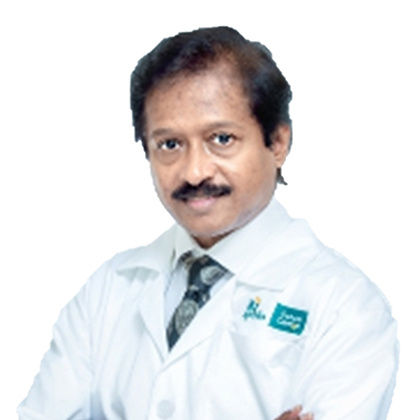How to Prevent Heart Disease: A Complete Guide to a Healthy Heart
Learn practical, evidence-based strategies to prevent heart disease with lifestyle changes, diet, exercise, stress management, and regular check-ups.


Introduction
Heart disease remains the world's leading cause of death, but here’s the empowering truth: it is largely preventable. Understanding what leads to heart disease is the first critical step towards taking control of your cardiovascular health. This isn't just about adding years to your life, but life to your years. This comprehensive guide will demystify the causes of heart disease, from the factors beyond your control to the daily choices that have the most significant impact. We will provide you with actionable, evidence-based strategies for prevention that you can start implementing today. Whether you're looking to make minor tweaks or a major lifestyle overhaul, this article will equip you with the knowledge to build a stronger, healthier heart for the long haul.
What is Heart Disease? Understanding the Basics
Heart disease, often used interchangeably with cardiovascular disease, refers to a range of conditions that affect your heart and blood vessels. It's not a single disorder but a collection of diseases and conditions. The most common underlying process is atherosclerosis, a condition where fatty deposits (plaque) build up inside the arteries, narrowing them and restricting blood flow. This can lead to various serious complications.
Common Types of Cardiovascular Diseases
• Coronary Artery Disease (CAD): The most prevalent type, caused by atherosclerosis in the heart's own arteries, which can lead to chest pain (angina) or a heart attack.
• Heart Failure: This doesn't mean the heart stops beating. It means the heart isn't pumping blood as well as it should, leading to fatigue, shortness of breath, and fluid build-up.
• Arrhythmia: Problems with the rate or rhythm of your heartbeat, which can be too fast, too slow, or irregular.
• Heart Valve Problems: Valves that don't open correctly or close properly can force the heart to work harder.
• Stroke: Often grouped with heart disease, a stroke occurs when blood flow to part of the brain is interrupted, which can be caused by a clogged or burst artery.
The Unavoidable Causes: Risk Factors You Can't Change
While lifestyle is crucial, some risk factors are inherent. Knowing these helps you understand your baseline risk and reinforces the importance of controlling what you can.
Age and Your Cardiovascular System
As we age, our heart and blood vessels naturally undergo changes. Arteries can stiffen, making them more susceptible to hypertension. The risk of damage to arteries and the heart muscle itself increases over time. Simply put, the older you get, the higher your risk.
Genetic Predisposition and Family History
If a close family member (parent or sibling) had early-onset heart disease (before age 55 for male relatives and 65 for female relatives), your own risk is elevated. This could be due to shared genetic factors that influence cholesterol levels, blood pressure, or other metabolic processes.
Sex-Based Differences in Heart Disease Risk
Men are generally at higher risk of heart disease at an earlier age. However, a woman's risk increases significantly after menopause, eventually catching up to that of men. It's crucial to note that heart attack symptoms in women can be different (e.g., nausea, jaw pain, extreme fatigue) and are sometimes missed.
The Leading Causes You Can Control: Modifiable Risk Factors
This is where your power lies. Addressing these factors is the cornerstone of preventing heart disease and even reversing some early damage.
High Blood Pressure: The Silent Killer
Hypertension forces your heart to work much harder to pump blood. This extra strain can damage your arteries, making them stiff and prone to plaque build-up. Often presenting no symptoms, it's vital to get checked regularly. If your readings are consistently high, lifestyle changes and medication are highly effective
.High Cholesterol and Atherosclerosis
Not all cholesterol is bad. LDL ("bad") cholesterol is a primary building block of arterial plaque. HDL ("good") cholesterol helps remove LDL. A diet high in saturated and trans fats raises LDL levels. Managing your cholesterol through diet, exercise, and if needed, medication, is a direct attack on atherosclerosis.
Diabetes and Insulin Resistance
High blood sugar levels from diabetes can damage blood vessels and the nerves that control your heart. People with diabetes are twice as likely to have heart disease or a stroke. Managing blood sugar is a non-negotiable part of cardiovascular disease prevention for diabetics.
The Impact of Smoking and Tobacco Use
This is one of the most significant risk factors. Chemicals in tobacco damage blood vessels, harden arteries, drastically increase blood pressure, and reduce oxygen in the blood. The good news? Quitting smoking begins to lower your risk almost immediately, regardless of how long you smoked.
Obesity and Sedentary Lifestyle
Excess weight, particularly around the abdomen, strains the heart. It's closely linked to high cholesterol, high blood pressure, and diabetes. A sedentary lifestyle exacerbates all these issues. Moving your body is one of the most effective prescriptions for heart health.
Your Heart-Healthy Diet: Food as Medicine
What you eat directly influences your heart's well-being. A strategic diet can lower blood pressure, reduce cholesterol, and manage weight.
Foods to Embrace: The Mediterranean Approach
Consider adopting a Mediterranean-style diet, consistently ranked best for heart health. Focus on:
• Fruits and Vegetables: Packed with fibre, vitamins, and antioxidants.
• Whole Grains: Oats, quinoa, and brown rice provide sustained energy and fibre.
• Healthy Fats: Avocados, nuts, seeds, and olive oil are excellent sources of monounsaturated fats.
• Lean Protein: Opt for fish (especially fatty fish like salmon rich in Omega-3s), poultry, beans, and lentils.
Foods to Limit or Avoid
• Processed Foods: Often high in sodium, unhealthy fats, and refined sugars.
• Saturated and Trans Fats: Found in red meat, full-fat dairy, fried foods, and baked goods. They raise LDL cholesterol.
• Added Sugars: Contribute to obesity, inflammation, and diabetes.
• Excessive Sodium: A major contributor to high blood pressure.
The Power of Movement: Exercise for Heart Prevention
Physical activity is a miracle drug for your heart. It strengthens the heart muscle, improves circulation, helps maintain a healthy weight, and lowers blood pressure and cholesterol.
Recommended Exercise Types and Duration
The American Heart Association recommends at least 150 minutes of moderate-intensity aerobic activity (like brisk walking, cycling, swimming) or 75 minutes of vigorous activity per week. This can be broken into 30-minute sessions, 5 days a week. Additionally, include muscle-strengthening activities (like resistance training or yoga) at least two days a week.
Beyond Diet and Exercise: Managing Stress and Sleep
How Chronic Stress Wreaks Havoc on Your Heart
When you're constantly stressed, your body is flooded with hormones like cortisol and adrenaline, which raise blood pressure and heart rate. Chronic stress may also lead to unhealthy coping behaviours like overeating or smoking. Techniques like meditation, deep breathing, and yoga are powerful tools for managing stress for heart health.Consult a Cardiologist for the best advice
The Vital Link Between Sleep Apnoea and Heart Health
Poor sleep, especially conditions like sleep apnoea (where breathing repeatedly stops and starts), is a major risk factor. It is linked to hypertension, arrhythmia, stroke, and heart failure. Treating sleep apnoea can significantly improve cardiovascular outcomes. Aim for 7-9 hours of quality sleep per night.
When to Seek Professional Help: Diagnosis and Monitoring
Prevention is proactive, but professional guidance is essential. If you have any risk factors, regular check-ups are crucial. If you experience symptoms like chest pain, shortness of breath, palpitations, or extreme fatigue, it is critical to consult a doctor immediately. For ongoing management of conditions like hypertension or high cholesterol, consulting a doctor online with Apollo24|7 can provide convenient and continuous care. They can help interpret your numbers and adjust lifestyle or medication plans.
Common Heart Health Screenings and Tests
• Blood Pressure Measurement: The most basic and vital test.
• Cholesterol Panel (Lipid Profile): Measures total cholesterol, LDL, HDL, and triglycerides.
• Blood Glucose Tests: To check for diabetes or prediabetes.
• Body Mass Index (BMI) and Waist Circumference: Measures healthy weight.
For more advanced screening, Apollo24|7 offers a convenient home collection for tests like the Lipid Profile or HbA1c (for diabetes), making it easier to stay on top of your health.
Conclusion
The journey to preventing heart disease is a marathon, not a sprint. It's built on a foundation of daily choices: the food you eat, the activities you choose, and how you manage your well-being. While genetics and age play a role, they are not your destiny. The power to influence your heart health lies overwhelmingly in your hands. By understanding the causes and implementing these evidence-based strategies for prevention, you are taking the most important step towards a longer, healthier, and more vibrant life. Start with one change today—take a walk, add an extra vegetable to your dinner, or schedule that long-overdue check-up. Your heart will thank you for years to come.
Consult a Cardiologist for the best advice
Consult a Cardiologist for the best advice

Dr. Tripti Deb
Cardiologist
40 Years • MBBS, MD, DM, FACC, FESC
Hyderabad
Apollo Hospitals Jubilee Hills, Hyderabad

Dr. Zulkarnain
General Physician
2 Years • MBBS, PGDM, FFM
Bengaluru
PRESTIGE SHANTHINIKETAN - SOCIETY CLINIC, Bengaluru

Dr. E Prabhakar Sastry
General Physician/ Internal Medicine Specialist
40 Years • MD(Internal Medicine)
Manikonda Jagir
Apollo Clinic, Manikonda, Manikonda Jagir
(150+ Patients)

Dr. Rakesh Gopal
Cardiologist
22 Years • “ Trained in Trans Aortic Valve Implantation ( TAVI ) from Mehmet Akif Ersoy Hospital Istanbul, Turkey “ & MD (General Medicine), FRCP (Glasglow)DNB( Cardiology), FESC, HICR Cert (Harvard University, USA), Angioplasty Training from Washington Adventist Hospital USA, Asan Medical Centre, Seoul Korea, Board certified in Cardio Oncology, ICOS- USA
Chennai
Apollo Hospitals Heart Centre Thousand Lights, Chennai
(100+ Patients)
Dr. Raman Puri
Cardiologist
29 Years • MD, DM
Delhi
Apollo Hospitals Indraprastha, Delhi
Consult a Cardiologist for the best advice

Dr. Tripti Deb
Cardiologist
40 Years • MBBS, MD, DM, FACC, FESC
Hyderabad
Apollo Hospitals Jubilee Hills, Hyderabad

Dr. Zulkarnain
General Physician
2 Years • MBBS, PGDM, FFM
Bengaluru
PRESTIGE SHANTHINIKETAN - SOCIETY CLINIC, Bengaluru

Dr. E Prabhakar Sastry
General Physician/ Internal Medicine Specialist
40 Years • MD(Internal Medicine)
Manikonda Jagir
Apollo Clinic, Manikonda, Manikonda Jagir
(150+ Patients)

Dr. Rakesh Gopal
Cardiologist
22 Years • “ Trained in Trans Aortic Valve Implantation ( TAVI ) from Mehmet Akif Ersoy Hospital Istanbul, Turkey “ & MD (General Medicine), FRCP (Glasglow)DNB( Cardiology), FESC, HICR Cert (Harvard University, USA), Angioplasty Training from Washington Adventist Hospital USA, Asan Medical Centre, Seoul Korea, Board certified in Cardio Oncology, ICOS- USA
Chennai
Apollo Hospitals Heart Centre Thousand Lights, Chennai
(100+ Patients)
Dr. Raman Puri
Cardiologist
29 Years • MD, DM
Delhi
Apollo Hospitals Indraprastha, Delhi
More articles from Heart disease
Frequently Asked Questions
1. What are the early warning signs of heart disease?
Early signs can be subtle. Look out for chest discomfort (pressure, squeezing, pain), shortness of breath, pain in the jaw, neck, back, or arms, nausea, lightheadedness, or cold sweats. In women, symptoms like unusual fatigue, indigestion, and heartburn can also be signs.
2. Can you reverse heart disease?
While you can't cure it, you can absolutely halt its progression and even reverse some of the plaque build-up through aggressive lifestyle changes (a very strict plant-based diet, intense exercise) and medication under strict medical supervision. This is often referred to as 'disease regression.'
3. How often should I get my heart checked?
If you're over 20 with no risk factors, a check-up every 4-6 years is fine. If you have risk factors (family history, high blood pressure, etc.), your doctor will likely recommend annual screenings. After 40, more frequent checks are advisable.
4. Is wine good for your heart?
The evidence is mixed and not strong enough to recommend starting to drink. While some studies suggest antioxidants in red wine might have benefits, the risks of alcohol (increased blood pressure, calories, addiction) often outweigh any potential small benefits.
5. What is the best exercise for your heart?
Aerobic exercises that get your heart pumping are best: brisk walking, running, cycling, swimming, and dancing. The 'best' exercise is the one you enjoy and will do consistently.

